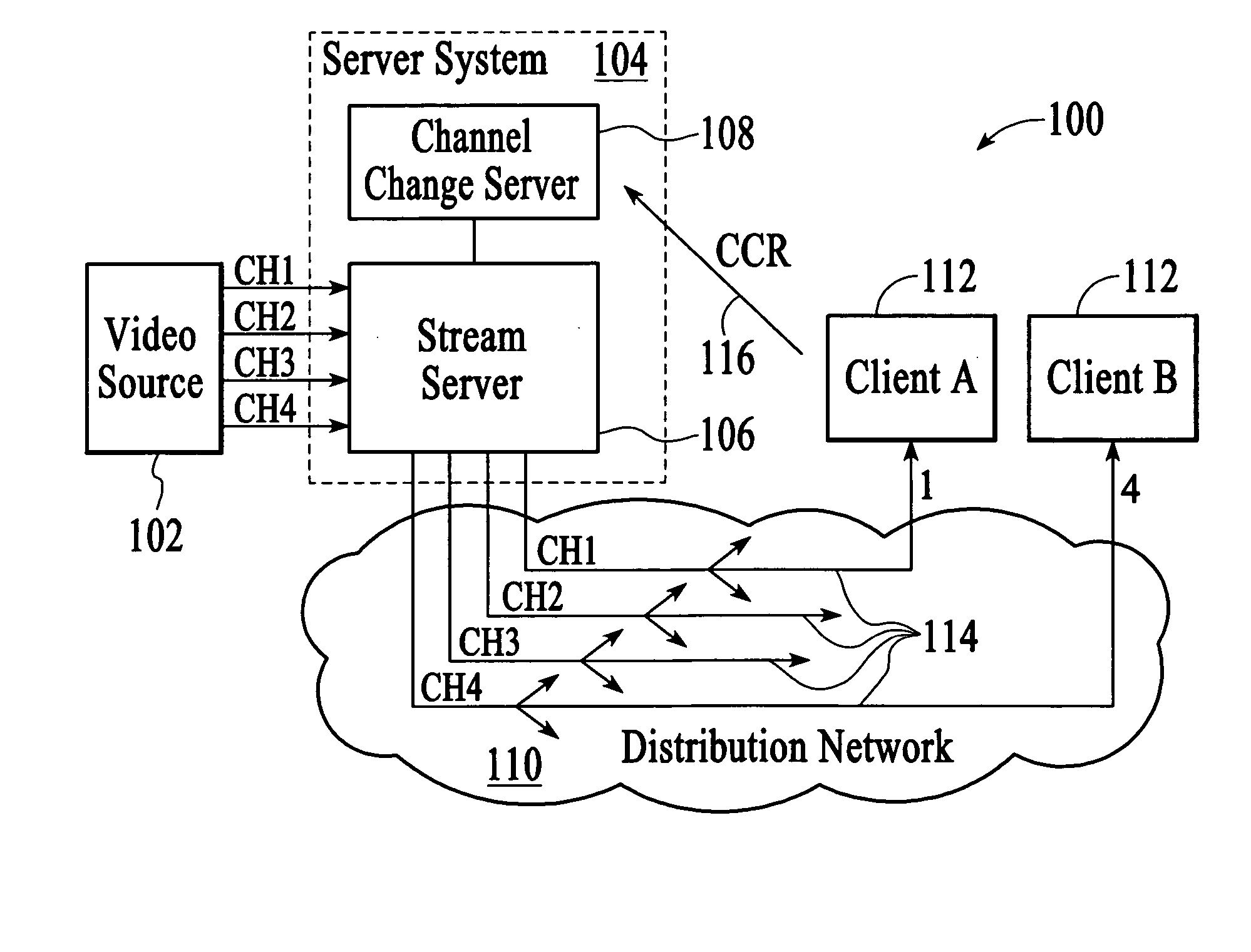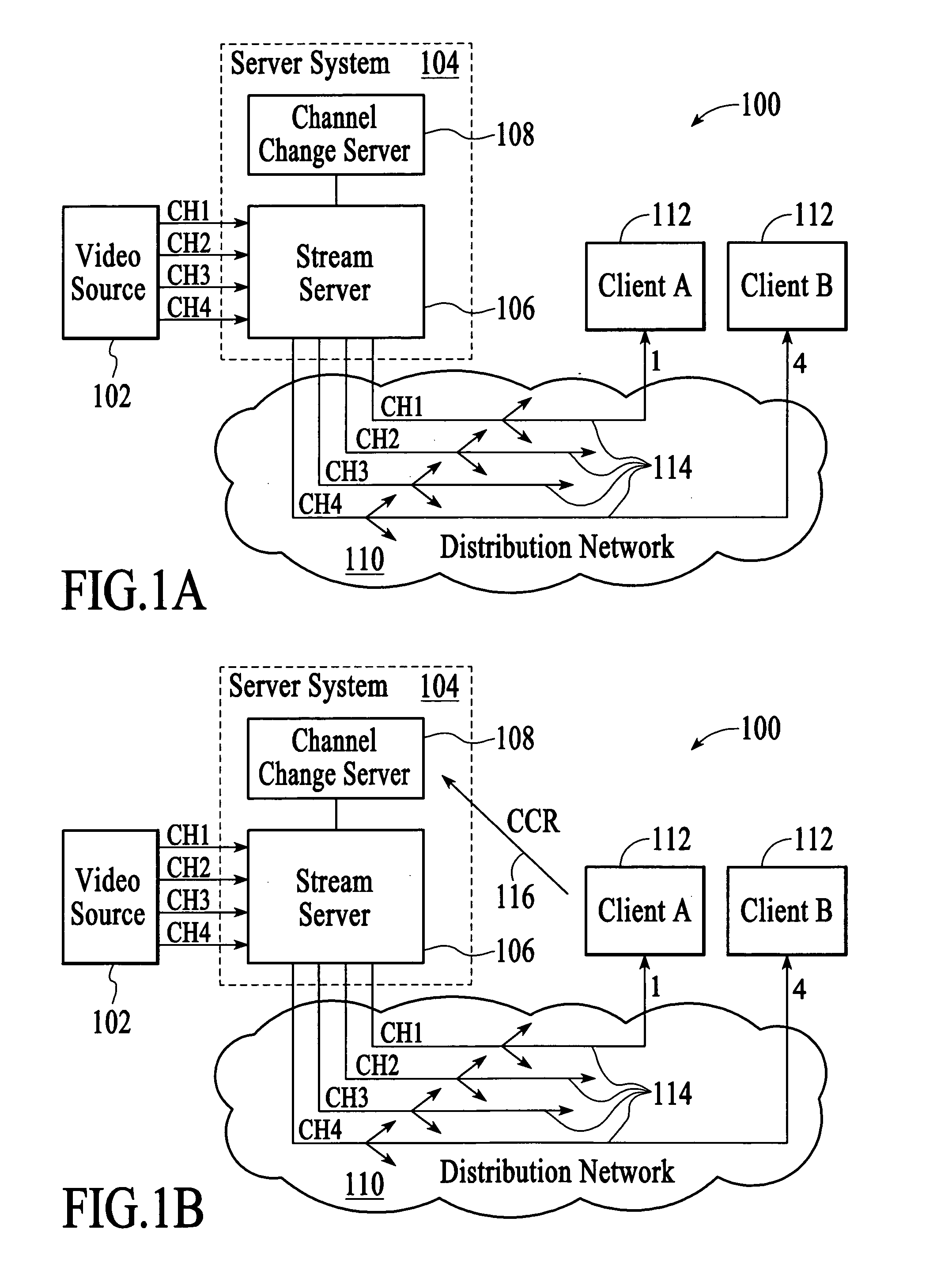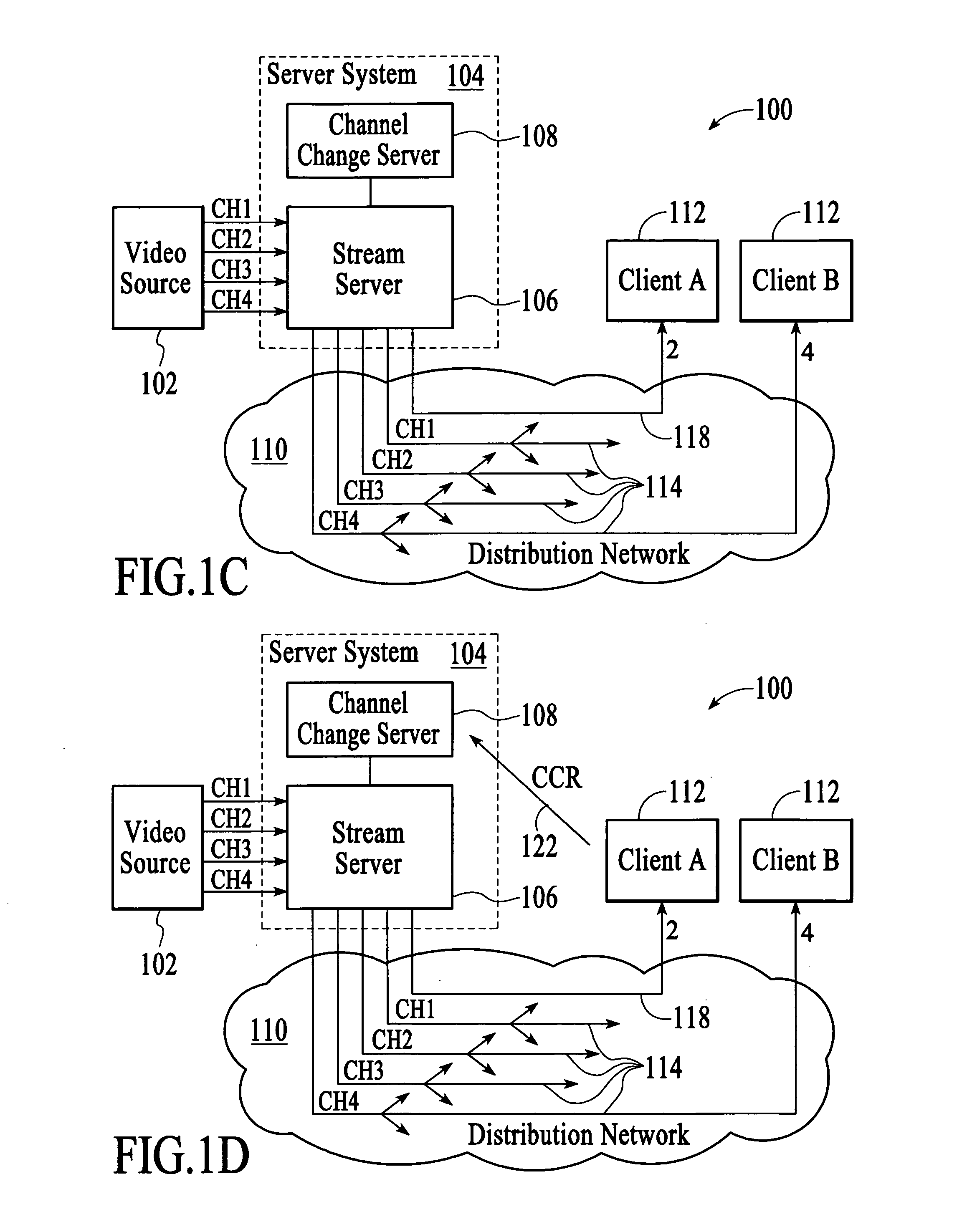Switching a client from unicasting to multicasting by increasing the unicast stream rate to the client
a multicast client and client technology, applied in the field of digital video networks, can solve the problems of affecting the quality of digital television experience, the inability to meet viewer expectations, and the poor experience of viewing digital video content delivered via broadcast channels, etc., and achieve the effect of efficient resource utilization
- Summary
- Abstract
- Description
- Claims
- Application Information
AI Technical Summary
Benefits of technology
Problems solved by technology
Method used
Image
Examples
Embodiment Construction
[0022] As used herein, the terms “multicast” and “multicasting” refer to a technique for providing the same digital video content to multiple clients in which the digital video content is delivered over common links only once (e.g., the digital video content is copied when it reaches nodes with links to multiple destinations). As used herein, multicast and multicasting are synonymous with the terms broadcast and broadcasting as related to, for example, hybrid fiber coaxial (HFC) cable networks.
[0023] As used herein, the terms “unicast” and “unicasting” refer to a technique for providing digital video content to a single specified client.
[0024] In some applications, the network for distributing digital video content is a packet-based network. In packet-based networks, multicasting may involve replicating packets at nodes that include multiple branches leading to different clients. The replication of packets at branching nodes eliminates the need to send multiple packets of the same...
PUM
 Login to View More
Login to View More Abstract
Description
Claims
Application Information
 Login to View More
Login to View More - R&D
- Intellectual Property
- Life Sciences
- Materials
- Tech Scout
- Unparalleled Data Quality
- Higher Quality Content
- 60% Fewer Hallucinations
Browse by: Latest US Patents, China's latest patents, Technical Efficacy Thesaurus, Application Domain, Technology Topic, Popular Technical Reports.
© 2025 PatSnap. All rights reserved.Legal|Privacy policy|Modern Slavery Act Transparency Statement|Sitemap|About US| Contact US: help@patsnap.com



